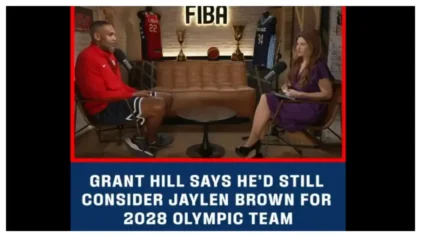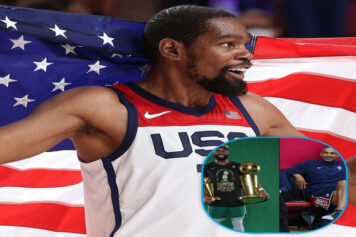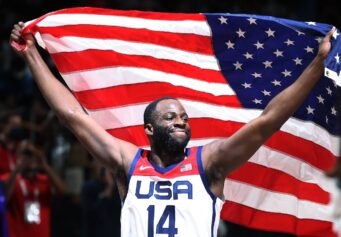Hill is one of five new members added to bring some needed perspective and credibility to college athletics’ governing body.
Grant Hill continues to stay relevant and influence the basketball landscape. The Hall of Famer played 18 seasons in the NBA and then broke more ground for minorities by becoming a co-owner of the Hawks. His business, community and philanthropic efforts are also well-documented.
It was announced back in April that Hill, who has been a member of the Basketball Hall of Fame Board of Governors since 2011, will become one of five new members of the NCAA’s board of governors later this year, adding some needed perspective, credibility, and integrity to college athletic’s governing body.
After the Commission on College Basketball’s findings on the scandal-ridden men’s game were met with criticism in the news media, Commission chair Condoleezza Rice defended the group’s work. https://t.co/mscJ618umG pic.twitter.com/NiJCr7UVT9
— USA TODAY (@USATODAY) May 10, 2018
The move fulfills one of the key recommendations made by the Commission on College Basketball, adding perspectives from outside campus leadership.
Some have labeled the move a conflict of interest because of Grant’s duties as an NBA analyst.
Is appointing former #Suns star Grant Hill to the #NCAA Board of Governors a conflict of interest? https://t.co/F7L9e9V6p5
— azcentral sports (@azcsports) May 2, 2019
However, you’ll find few guys as qualified, experienced, level-headed and culturally aware as Hill, who is perfect for the position.
A diverse mix of prestigious names will be joining Hill on the board. Former American Express CEO Kenneth Chenault, former university president Mary Sue Coleman, former U.S. Surgeon General Vivek Murthy and Denis McDonough, who served previously as President Obama‘s chief of staff.
“College sports and higher education will undoubtedly benefit from the diverse perspectives that each new member brings as we all look for the best ways to enhance the student-athlete experience,” Georgia Tech president and board chairman Bud Peterson said in a statement. “With the addition of these independent members, the board structure is closely aligned with best practices in nonprofit and higher education to include public voices in the highest governing body.”
Four of the five will begin their full terms next month.
Coleman, the former president of the University of Iowa and the University of Michigan, will serve a one-year transitional term, with her replacement being named by the Executive Committee next spring.
The NCAA — which has been trying to transform its “predatorial” image and appear more sensitive to issues of diversity, as well as change an oppressive culture with unrealistic rules that has led to corruption by coaches and players and lawsuits from players seeking to be paid for the use of their likeness and images — said it received more than 150 nominations from the general public and considered more than 250 candidates before selecting the final five.
NCAA Against California Bill To Compensate Student Athletes For Use Of Image, Likeness | The Shadow League : The Shadow League https://t.co/HzosQfT1uc
— LA MAQUINA DE SOMBRAS (@FANalyst1) June 26, 2019
Until now, the board has comprised 16 university presidents and chancellors, representing all three of the NCAA’s athletic divisions; the chairmen and chairwomen of the Division I Council and Division II and Division III Management Councils; and NCAA President Mark Emmert. The council heads and Emmert are all non-voting members.
Needless to say, there was no one to truly represent the welfare of the student-athletes and offer a non-prejudice viewpoint.
Commission chairwoman Condoleezza Rice was the originator of the recommendation that the NCAA add at least five public voting members to its Board of Governors. The thinking being these outside board members would have a little more clear-eyed view of the problems facing college sports and possible solutions for them, unlike the university presidents and chancellors that have comprised the board.
Dabo Swinney Gets Paid While The NCAA Exploits Its Unpaid Labor Force – The Shadow League https://t.co/Rl2Elakbw1
— Jet To Freedom (@Jettofreedom) June 23, 2019
“Each of these (previous) Board members wears a second hat for a school, conference or NCAA division or body that creates at least an appearance that he or she cannot be entirely objective in determining the direction of the Association,” the Rice Commission said in explaining its recommendation.
With the conflict of interest addressed, the NCAA is hopefully one step closer to cleaning up the sport and further from being recognized as an archaic body that exploits young black student-athletes for profit.



